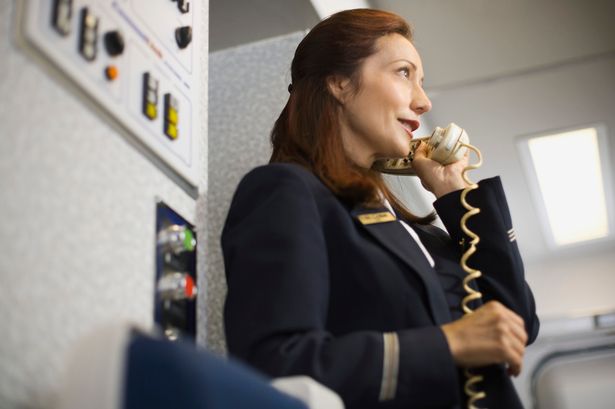If you hear this word whilst you are on a flight, it might mean that one of your fellow passengers has died on board – and cabin crews have a whole host of codewords like this
Cabin crews have a lot to deal with as they take care of passengers during their flights. In addition to keeping everyone happy and well-fed, they occasionally have to deal with more major crises, but flight attendants are known to use secret codewords to ensure that they don’t panic any of the other passengers.
One phrase, in particular, can mean, if you hear it whilst travelling, that someone on the plane has sadly died – and the staff are trying to let each other know what’s going on, whilst keeping the situation under wraps from the passengers.
The code words regularly used for a death mid-flight are “Angel” or “Code 300.” These words allow discretion while the crew deals with the sad situation and ensure that no excess attention is drawn or alarm is generated amongst those on the flight.
Travel experts at Wander have put together a list of in-flight codes and phrases that passengers may encounter on a flight, but do not know what they mean. Whilst most flights go smoothly, on others there can be some issues where flight crews need to communicate with each other secretly, so as not to alert passengers.
There are a number of other in-flight codes and phrases that passengers may hear when on a flight.
If a traveller hears ‘Squawk 7500’ or ‘Hotel’, it means that a hijacking is in progress. As a passenger, if you hear this either mentioned by the flight crew or air traffic control, it signals that there is a potential security threat on the flight. Usually, the aircraft’s transponder will send a signal with this code to alert authorities that the plane is in danger.
Another alert is ‘Code Yellow’. A ‘Code Yellow’ indicates a minor medical situation, such as a passenger feeling lightheaded or nauseous. While not an emergency, it allows crew members to discreetly monitor a situation and assess whether they need any assistance.
If a serious but non-life-threatening emergency occurs while on a flight, passengers may hear ‘Peter Pan’. The phrase indicates that something is wrong onboard the flight, which could be mechanical trouble or a medical emergency, but it also signals that the flight is not in imminent danger.
‘Mermaid’ is a nickname used for a passenger who deliberately sprawls across empty seats. This behaviour is particularly common on flights with spare seats, where a passenger may stretch out to try and claim the extra space. Last year, one passenger got into an argument with another passenger over an empty seat, as she was told she wasn’t ‘allowed’ to sit in it despite nobody paying for it.
The woman needed to move seats because something was wrong with hers, and a flight attendant informed her she could move to an empty seat in the row across from her own. When she tried to sit in it, however, the woman sitting next to the empty chair told her she “wasn’t allowed”—despite nobody having booked it.
‘Code Adam’ is not used onboard planes but in airports to indicate a missing child. If an announcement is made for a ‘Code Adam’, staff will begin searching the airport while securing exits to prevent abductions. At an airport, ‘Code Bravo’ may also be used to signal a general security alert.
Finally, while ‘VIP’ is usually used to refer to a ‘Very Important Person,’ in the airline industry, it can sometimes refer to a ‘Very Irritating Passenger.’ Crew will sometimes use the code to refer to a traveller who is making excessive demands, complaining a lot, or generally being difficult without violating any specific rules.
Do you have a story to tell? Email: [email protected]

